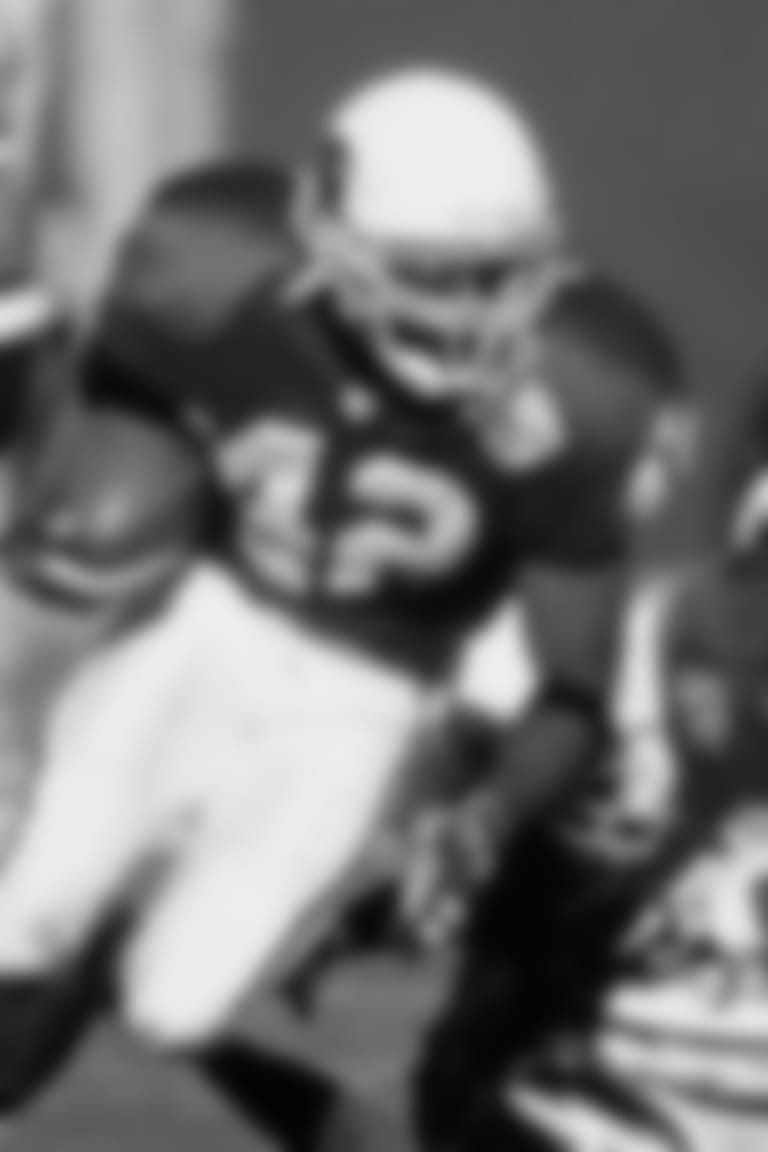The second season of Folktales continues this week, with "Lassiter's Legacy" premiering on the Arizona Cardinals YouTube channel Wednesday at 7 p.m.
The NFL record for most interceptions in a game is four, a mark held by 13 players.
But only once did someone make four interceptions in a game that propelled his team to the playoffs for the first time in forever, by a guy who clawed his way into the NFL and never let anyone forget it.
That's who Kwamie Lassiter was.
"Kwamie was not shy about letting you know, 'Hey, I'm here,' " said Hall of Fame cornerback and Lassiter teammate Aeneas Williams. " 'I'm going to be here, and I have contributed to everything that's happening good here.' "
That Lassiter was the hero was somehow fitting for that time and that team, a one-time undrafted free agent who battled his way on to the roster of then-coach Buddy Ryan. The Cardinals needed to win their final three games in 1998 to make the playoffs for the first time since moving to Arizona; the "Cardiac Cards" won each time on a field goal in the final seconds, the team an underdog all season – just like Lassiter.
The safety had gone to community college before landing at Kansas. He found a place with the Cardinals, although even in 1998 he didn't start until the final month of the season. In a secondary with Williams and rookie Pat Tillman and Corey Chavous, among others, Lassiter's personality and leadership was as big as any.
The celebration after Chris Jacke's field goal gave the Cardinals a 16-13 heart-stopping win on the final play of the regular season was rightfully about finally reaching the postseason. But Lassiter's quartet of picks were a big reason they got there.
"For a DB to get two interceptions, that's special, right?" said Frank Sanders, a wide receiver on that team. "But three? All right, now God's on your side. Four? Jesus is in your pocket."
Said Williams, "I wasn't surprised of Kwamie rising up to that moment and having a game of a lifetime."
Sanders first met Lassiter at the Blue-Grey college all-star game in 1995. Sanders was an expected high draft pick – the Cardinals took him in the second round a couple of months later – and Lassiter previewed their eventual relationship while the players were out for "evening festivities," as Sanders called it.
Sanders had been playing well in practice, and with the game in Alabama, the Auburn product was seen as a host for players from around the country.
"You're supposed to be the man," Lassiter told Sanders. "You need to be poppin' bottles."
Sanders smiles at the memory, noting that Lassiter convinced him to indeed use his name to ensure a good time in the club.
"To watch his plight and his steps … you always have to get much love and much respect to it because you just don't know how it's going to happen," Sanders said.
Lassiter was brash, but no one called him cocky. He was a fighter who graduated from being just a jersey number for coach Buddy Ryan to a key component to the secondary a couple of years later. He wore the No. 42 in honor of his idol Ronnie Lott (and never would've given it up, which is why Tillman ended up wearing 40 with the Cardinals after wearing 42 at Arizona State.)
"He would come and sit next to me as a rookie and say, 'Hey, Bankston, you better know me before I blow up,' " said defensive end Michael Bankston, who played with Lassiter for three seasons.
Eventually, Lassiter did. In his last four seasons with the Cardinals, he started every game. He had nine interceptions in 2001, tied with Williams' 1994 season for most picks in a year since the team moved to Arizona.
He played well enough to earn the franchise tag after that season – Lassiter wasn't thrilled about that, wanting a long-term deal instead – and became a mentor to Adrian Wilson, who was drafted in 2001.
But in 1998 he was still battling for his role, starting half the games while the Cardinals – at 6-7 with three games left – were fighting for their season.
They beat the Eagles, 20-17, in Philadelphia in overtime, with Chris Jacke booting a 32-yard field goal to win it after missing a 34-yarder that would have won it with six seconds left in regulation. They came home to Sun Devil Stadium beat the Saints, 19-17, on a 36-yard Jacke field goal on the final play after a 73-yard drive from their own 8-yard line.
There was no reason to think the finale against the Chargers would be different.
"We got the name 'Cardiac Cards,' because we just kept coming back and getting wins," Sanders said. "You had a chance to get into the playoffs, and if you want those last three games, you had to do something pretty special."
Something special, like making four interceptions in a game.
"We knew internally what it was we were capable of doing," Williams said. "(Kwamie) would say these things in practice. We'd be sitting on the sideline when the offense is doing defensive scout team, and he would be prophesying so to speak. 'I'll intercept three balls.' He probably said in practice he was going to intercept four passes in the game."















